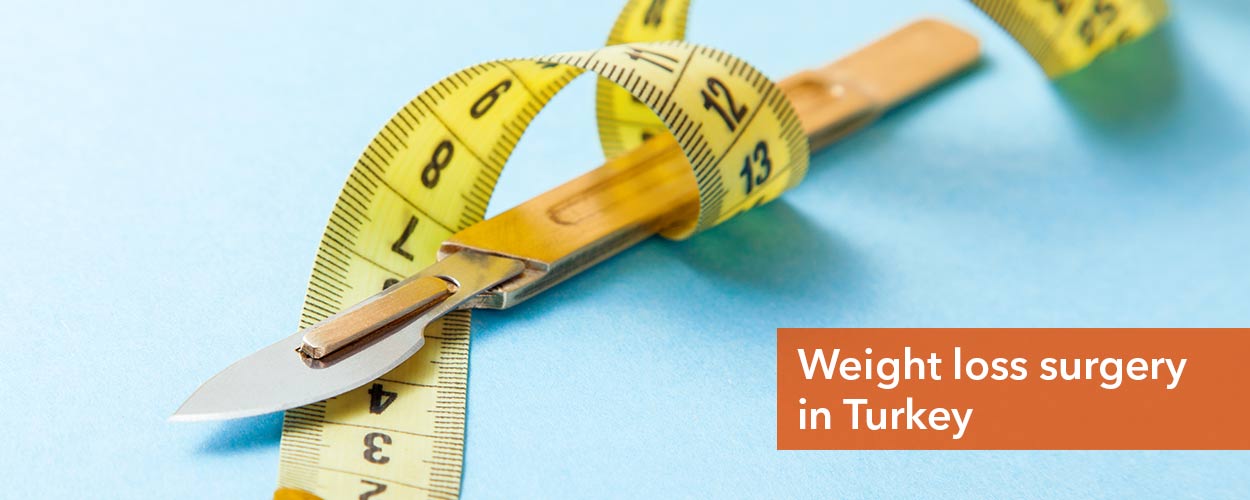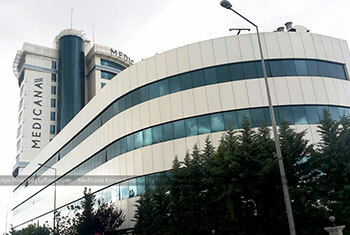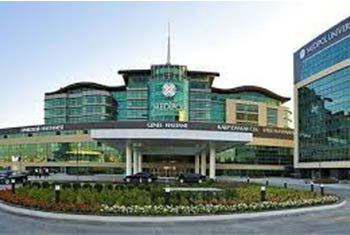Types of bariatric surgery
Based on the method of weight loss, many types of bariatric surgeries are available:
Laparoscopic Adjustable Gastric Band
In this bariatric procedure, a medical device known as gastric band in the form of a ring is placed around the top of part of the stomach to create a small pouch. The band is inflatable and adjustable. It makes the patient feel full sooner and after eating a small amount of food than before. The band comprises an inflatable circular balloon inside filled with saline (salt) solution.
The size the opening from the pouch to the rest of the stomach can be adjusted by injecting or removing the saline solution through a port, a small device placed under the skin during the surgery.
After the procedure, the doctor will schedule certain follow-up visits to make adjustments to the size of the band opening. The procedure is reversible, which means if the band is causing any problem or not helping with enough weight loss, it can be removed through a surgical procedure.
Gastric Sleeve
Gastric sleeve or vertical sleeve gastrectomy surgery is also a widely performed bariatric procedure. In this, a majority part of the stomach is removed, and only a banana-shaped section or sleeve of the remaining stomach is left which is closed with staples.
This surgery also restricts the amount of food that can the stomach can hold, leading the patient to feel full sooner than before, i.e. with less amount of food. Removing a part of the stomach may also affect certain gut hormones or factors such as gut bacteria that play a role in enhancing appetite and metabolism. This is not a reversible surgery as it involves permanently removal of some part of the stomach.
Gastric Bypass
One of the most common weight loss surgery is gastric bypass procedure, also known as Roux-en-Y gastric bypass. It comprises two parts. In the first part, the surgeon divides the stomach and creates a small pouch in the upper section of the stomach using staples.
This results in restriction of amount of food the stomach can hold, making a person eat less and feel full sooner. In the next part, the surgeon removes a section of small intestine and attaches the small stomach pouch directly to the lower part of intestine. This results in a bypass for passage of food through most of the stomach and the upper part of the small intestine. It causes the body to absorb fewer calories than before the surgery.
As the bypassed section is still attached to a part of the stomach, digestive juices can move from the stomach and pass through the first part of the small intestine into the lower part to aid in digestion. The bypass may also affect the gut hormones, bacteria, and other factors that affect appetite and metabolism of the person.
Duodenal Switch
The biliopancreatic diversion with duodenal switch, or simply called duodenal switch is a complex surgical procedure. This duodenal switch surgery involves two separate procedures. In the first, a small section of stomach is created, similar to that made in the gastric sleeve surgery, while in the second surgery, a bypass is created to redirect the food from most of the small intestine.
The bypassed section is reattached to the last part of the small intestine, which enables the digestive juices to mix with food and allow proper breakdown of nutrients. This surgery can help a person lose more weight than the other three, but there are more risks and complications involves.
The patient is more likely to have surgery-related problems and a deficiency of vitamins, minerals, and protein in the body due to their malabsorption. Therefore, it is important that the patients are carefully evaluated and selected for the surgery and to have success results.







